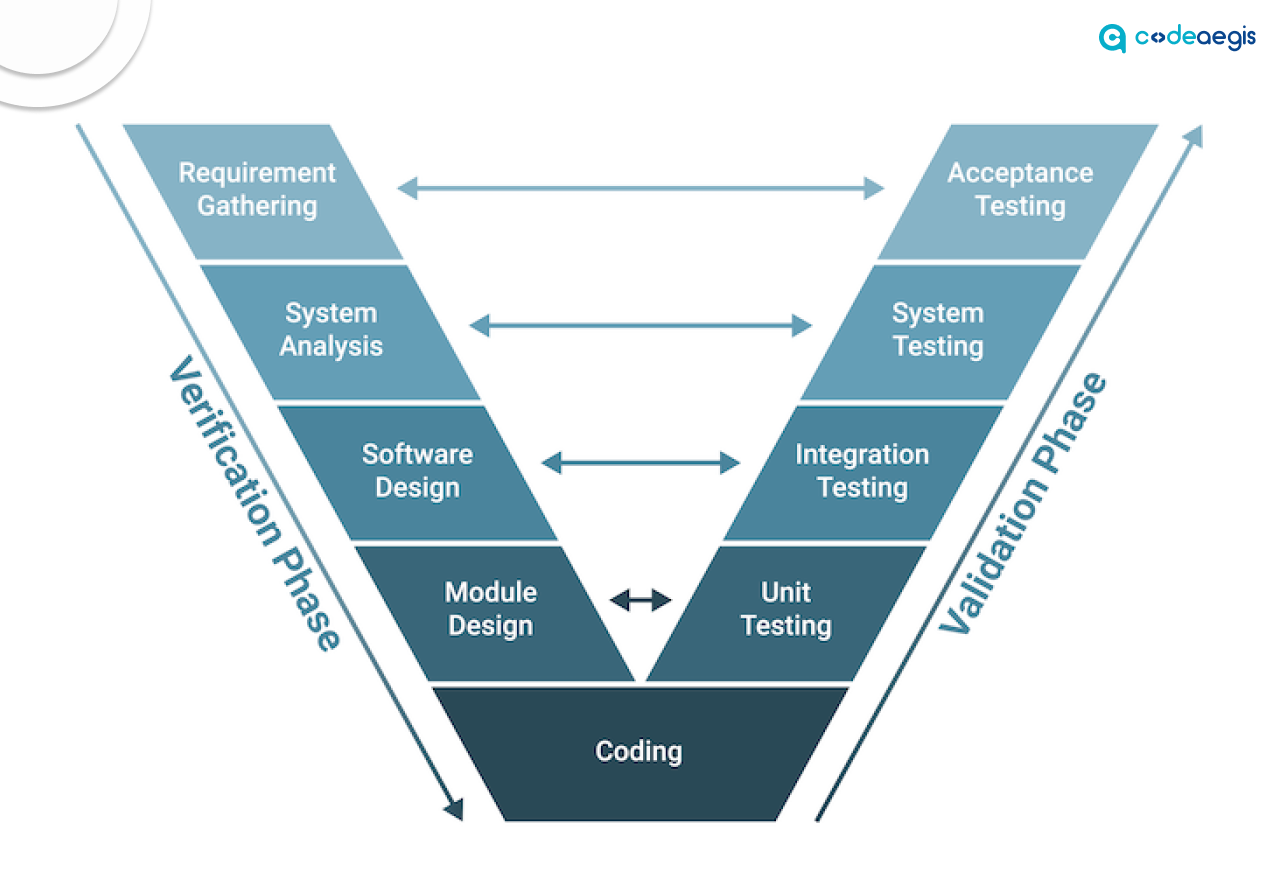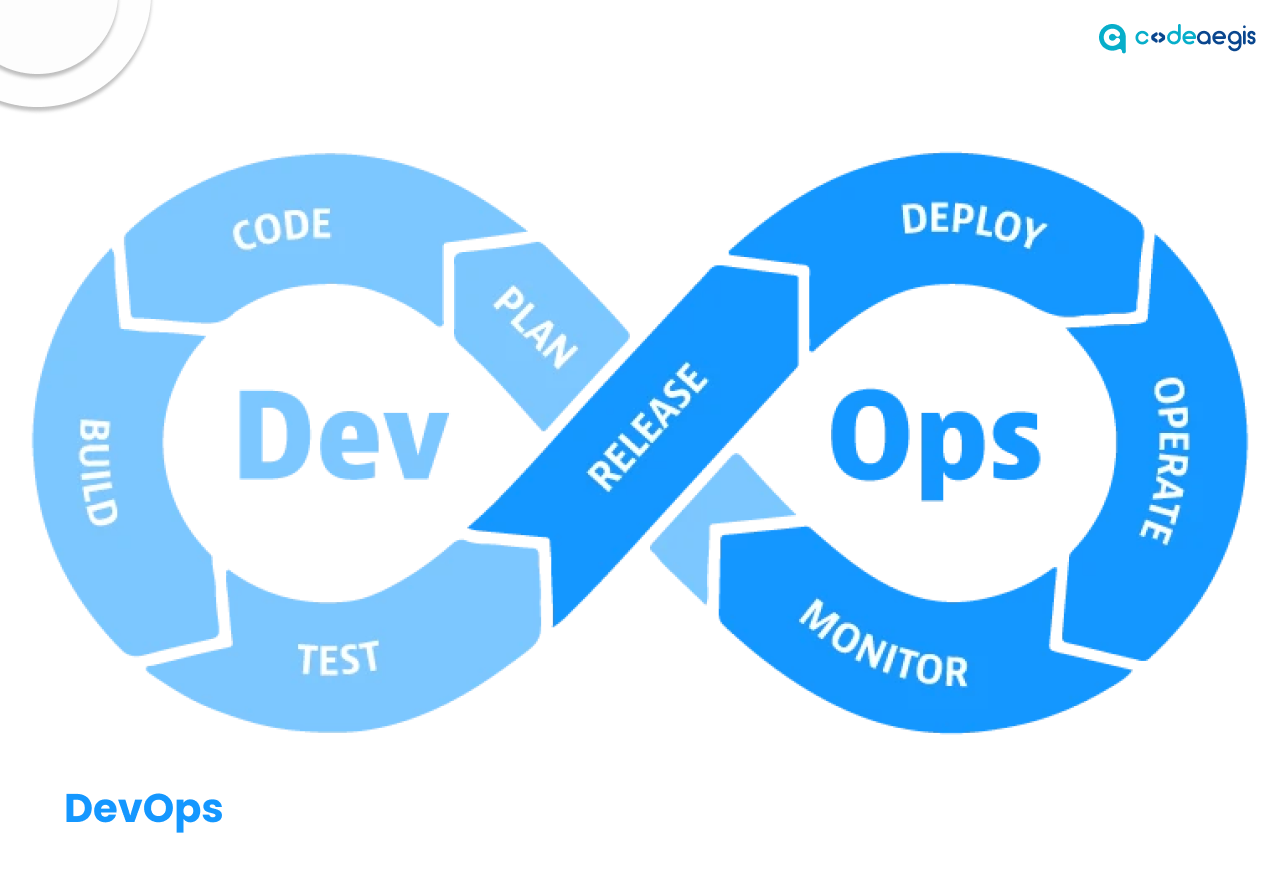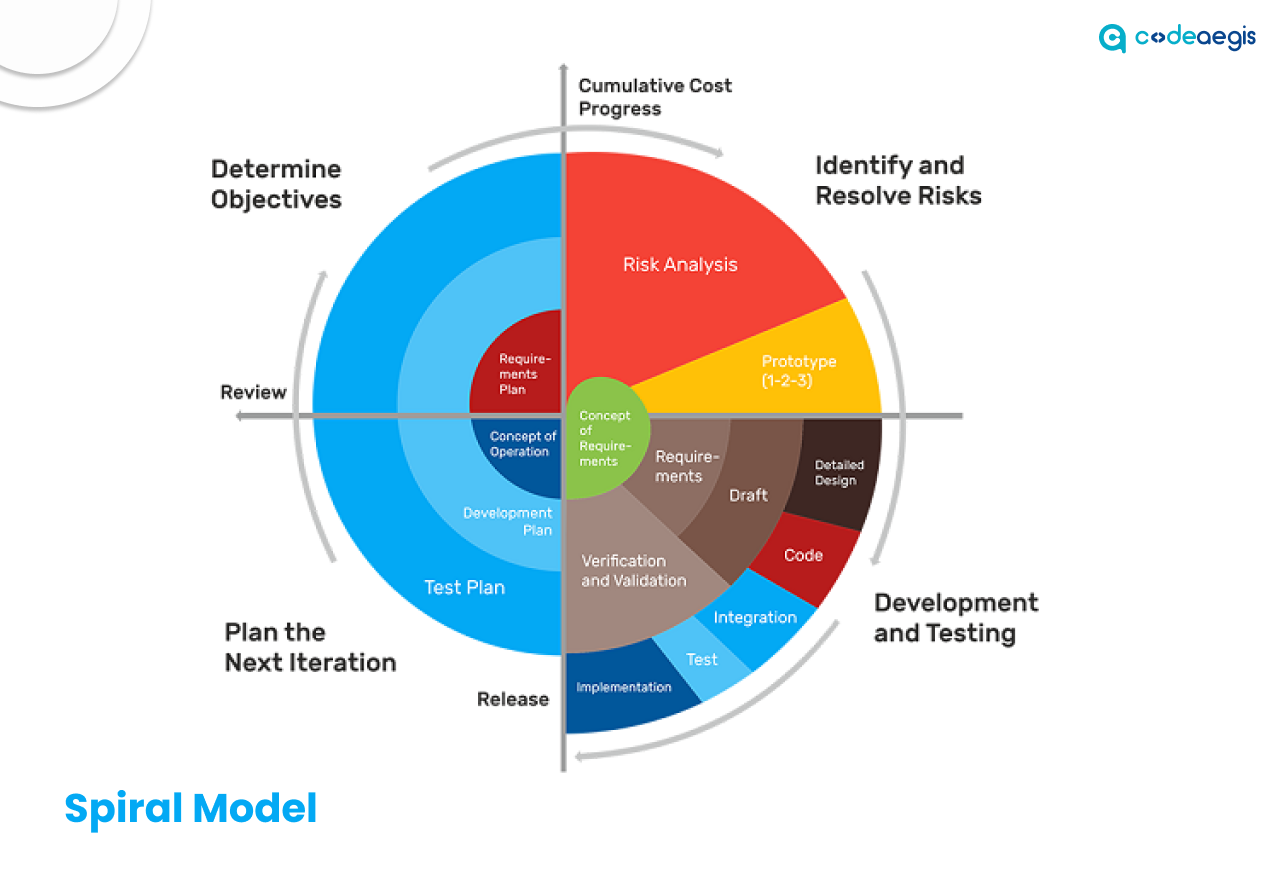




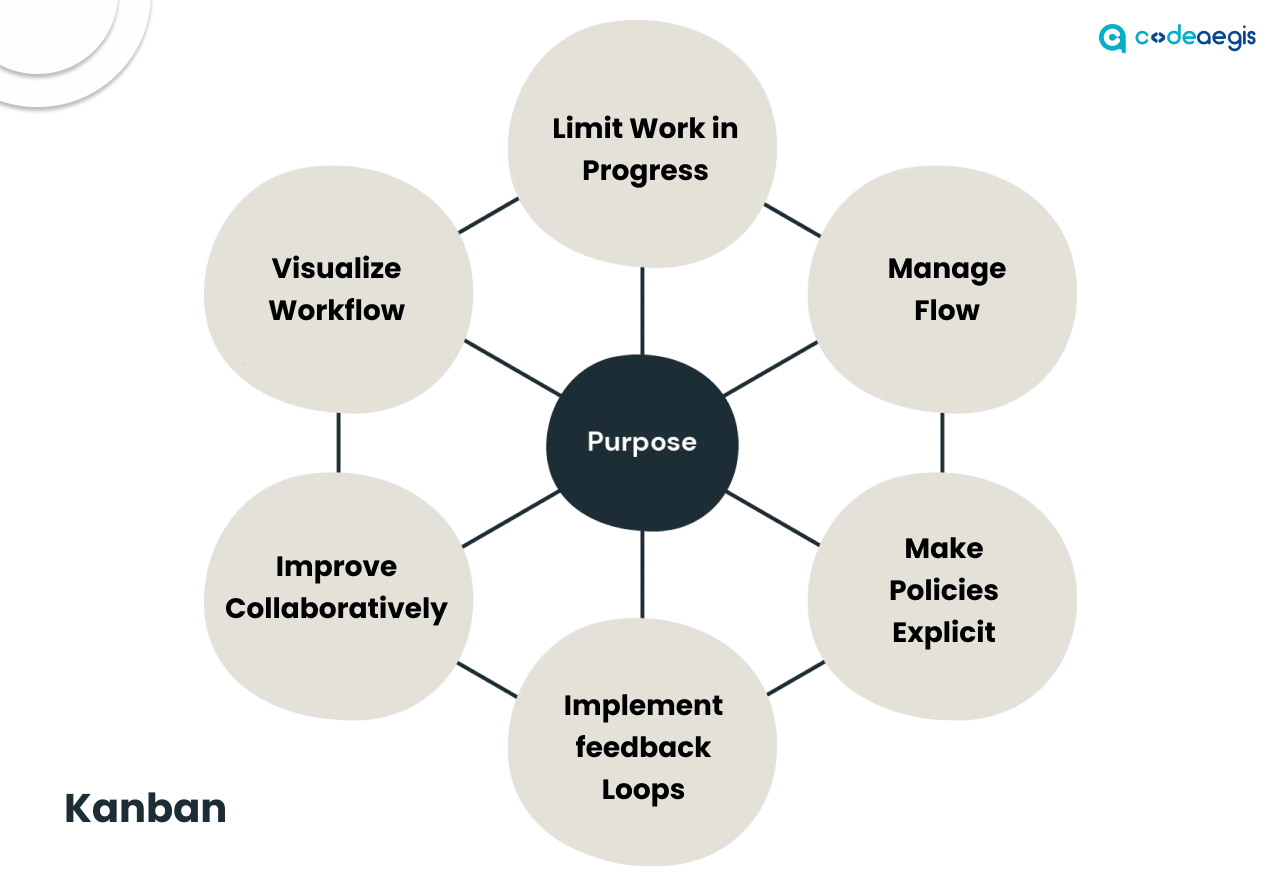
- April 24, 2025
- 30 Views
Sipping coffee and thinking of a startup has always been trendy. Similarly, hanging out with friends and promising them to start a business someday feels refreshing.
Did you know that several successful businesses were once just friends? For example, the founders of Google, Microsoft, Zomato, and Uber embarked on their journeys with friends.
Below, you’ll find businesses that were once just a startup idea and the dream of two friends.
- Google: Larry Page and Sergey Brin
- Microsoft: Bill Gates and Paul Allen.
- Zomato: Deepinder Goyal and Pankaj Chaddah
- Uber: Travis Kalanick and Garrett Camp
This proves that startups are not just an idea but a whole ecosystem requiring constant support, hard work, modern technology, and impactful resources. Initially, they’re seeds that need enough water, fertile soil, and sunlight to blossom into trees that give back to society.
Startups are like young plants needing strategic planning, vision, modern technologies, honest feedback, and rigorous testing to emerge as the best, value-driven, impactful ventures.
Indeed, founders or CEOs who bring a startup's blueprint into reality may encounter thought-provoking challenges. In such a scenario, an optimistic mindset helps them find a way forward and enables them to stand strong like a tough wall for others to rely on.
It is clear that the startup journey begins with many challenges, introspection, and previous dissatisfactions. Facing challenges is an inevitable part of a startup's journey, but those who find the cure are the real entrepreneurs guided by their true selves.
In this blog, you’ll learn about the importance of custom software models, different types of software development models, the latest trend, and highlights key factors a startup must consider. There’s much more to explore in detail, so delve deeper into the blog without further ado.
-
Table of Contents
-
- Importance of Custom Software Development for Startups
- Software Development Models in the Market
- Popular Software Development Models for Startups.
- A Startup-Friendly Comparison of Software Development Models
- Why To Choose Right Software Development Model for Startups?
- Factors To Consider When Choosing a Software Development Model For Startups
- Which Software Development Model is right?
- Why Choose CodeAegis For Startup Software Development Services?
- Does a Startup need to look for In-house or Outsource Companies?
- Conclusion
- FAQs
-
Why Is Custom Software Development Important for Startups?
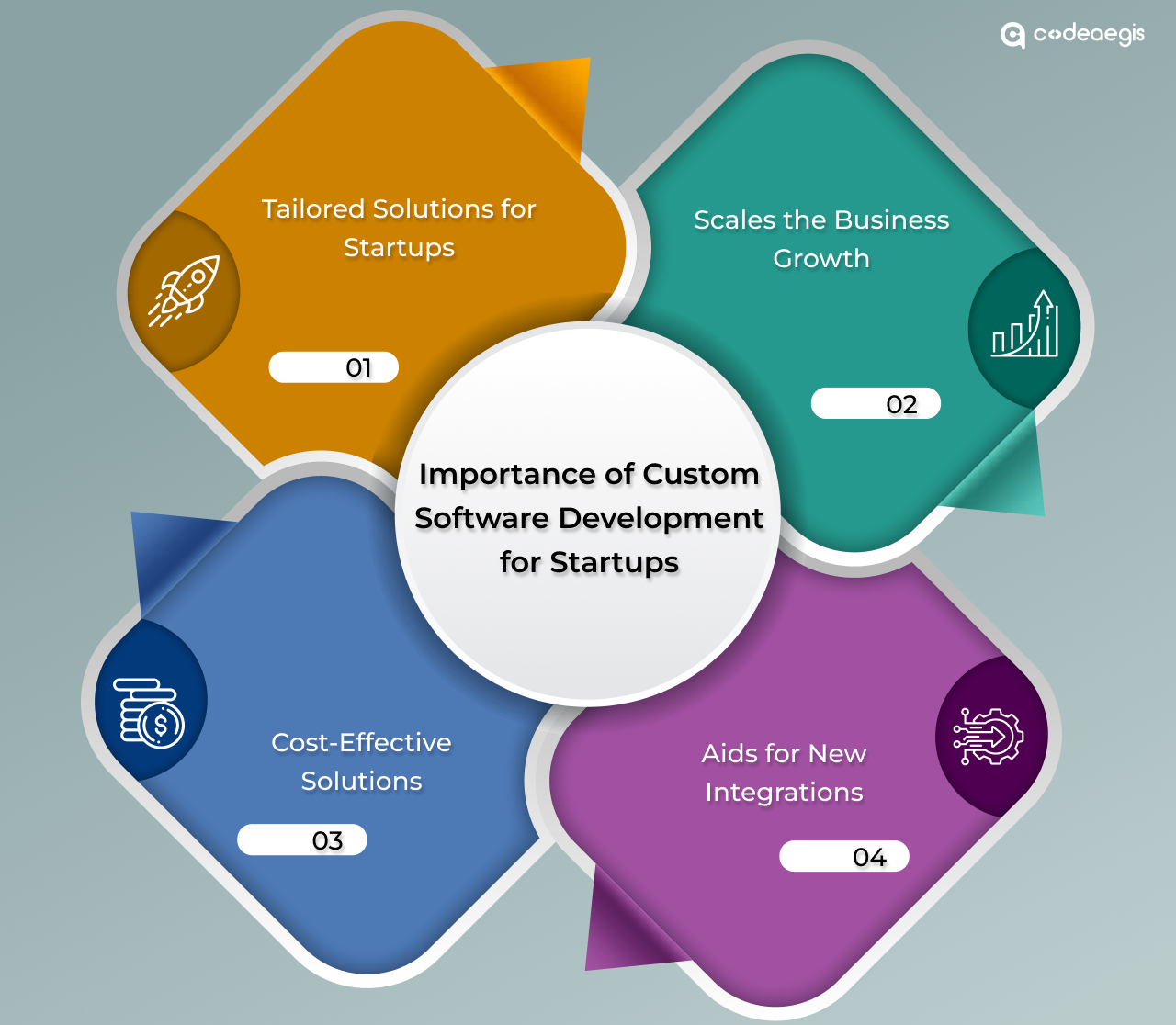
Customization is on trend because each one has something innovative to serve mankind. Customers always search for something creative and powerful that reduces human efforts and eases work smartly.
But what are the driving forces behind all these innovations? The obvious answer is that startups are continually innovating and making fruitful efforts to make the world a place to live graciously. Therefore, they need customization to compete in the market and establish a strong monopoly.
Customization can help startups support their journey from beginning to end in multiple ways. Below are some points that explain why customization is a sacred drink for startups to live long in the market and earn multiple layers of profit.
Tailored Solutions for Startups
Startups have innovative business models, different target audiences, visions, and operational requirements. To fulfill the diverse range of needs, customization is mandatory to deliver effective solutions.
Scales the Business Growth
Startups have robust visions and short-term goals. They’re quite dynamic and have a unique business model. As businesses grow, there is an instant need for change and scaling the company for further support. Therefore, customization is essential to always be relevant, competitive, and on the same page.
Cost-Effective Solutions
Investing in custom software may seem like a significant cost, but it delivers exceptional long-term value. Custom software solutions are tailored to your unique requirements and eliminate the need for multiple software licenses and integrations.
Aids for New Integrations
Startups rely on multiple tools and platforms to manage their business operations. Therefore, Custom software solutions are best for them as they seamlessly integrate with existing systems without interruption or errors.
How Many Software Development Models Are There in the Market?
There are more than 50 software development models available in the market, but covering all of them in this blog would be impractical. Instead, we’ve selected the top 8 models that are easy to use with startups.
Top 8 Popular Software Development Models for Startups.
The right software development model can lead to the right end goal while optimizing the available resources and ensuring a 100% satisfaction rate. You might ask if each model has its own advantages and built-in benefits, so what difference does it make which one we choose?
Yes, this question may sound simple, but it will have a lasting impact. Picking the right software development model for startups matters, as each model is built with different goals in mind.
We’ll walk you through detailed descriptions of each model, such as Agile, Waterfall, Scrum, and Lean. Each one holds exceptional value for startups and enterprise-level companies.
1. Agile Methodology
Did you know that, in 2022, the value of the agile development industry in China will increase by 32%?
According to estimates, the industry is about to reach a value of over 19 billion yuan by 2025, as per Statista.
Why is there substantial growth? It is possible because companies are opting for the agile model. This project management approach is equally fruitful for startups. It simply breaks down projects into small, manageable phases that seem practical and easy to achieve within the given timeline.
This process will make it easy for the developers and managers to stick to the project and align with the tailored requirements. If there are any changes, they will be set for those changes throughout the development phase.
Why opt for the Agile Model?
- You can opt for the agile model when you have a limited timeline.
- If you’re willing to rely on regular progress updates and are in a hurry to launch a product.
- There is no comparison to agile when certain ambiguities in the development can only be removed throughout the development process.
How Does the Agile Model Work?

2. Waterfall Model
The waterfall is a traditional development model still relevant to the software world. Companies and startups are good to go with it. In this development model, your project will be broken into pieces like requirement gathering, Design, Development, testing, deployment, and launch.
The most relaxing aspect is that you can not move ahead without finishing the previous phase. Yes, it would not be wrong to consider it a value-oriented model.
So, when does this stage come into force? This is the most used model, which can be used when the requirement is clear and agreed upon without modification.
Why opt for the Waterfall Model?
- You have clear requirements for when changes are not mandatory.
- When you’re 100% sure about the designs and technologies being used.
- If your project is supposed to take months or more, the waterfall method requires an hour, and thorough documentation is required at each stage.
How Does the Waterfall Model Work?
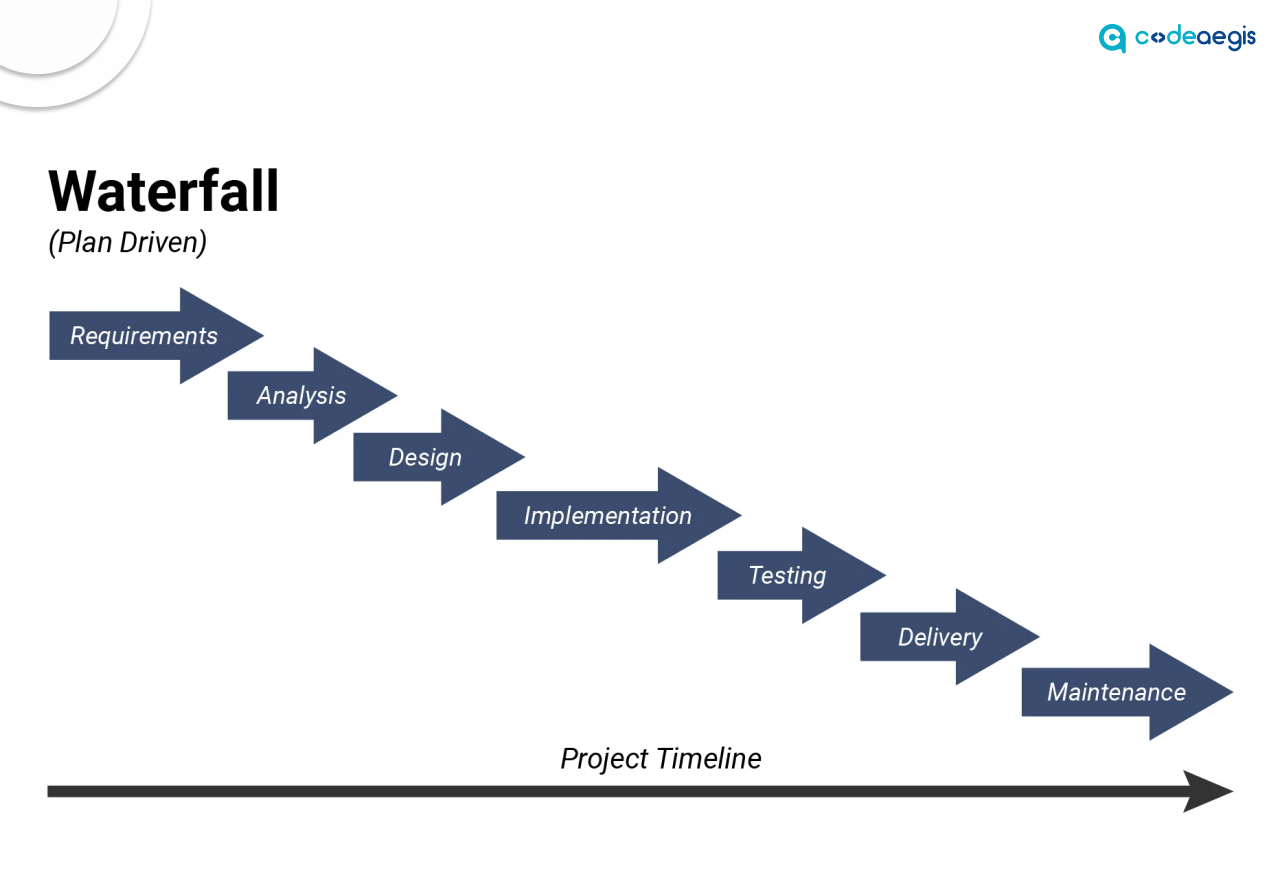
3. Scrum Model
Startups really need a model to help them establish their business. To complement their requirements, one software development model for startups is Scrum.
Scrum harnesses team collaboration and gives tools for self-assessment. If any hurdles are in between, they are dealt with collectively. In this model, the scrum master ensures that the team brings productivity while removing the hurdles.
Why opt for the Scrum Model?
- If you’re the one who prioritizes collaboration and flexibility, then Scrum would be the model.
- If you have limited time or resources, then it would be better to use the Scrum model for a long time.
- The model is based on taking feedback, testing, and addressing issues early, which helps to create grievance-free solutions that are widely accepted.
How Does the Scrum Model Work?
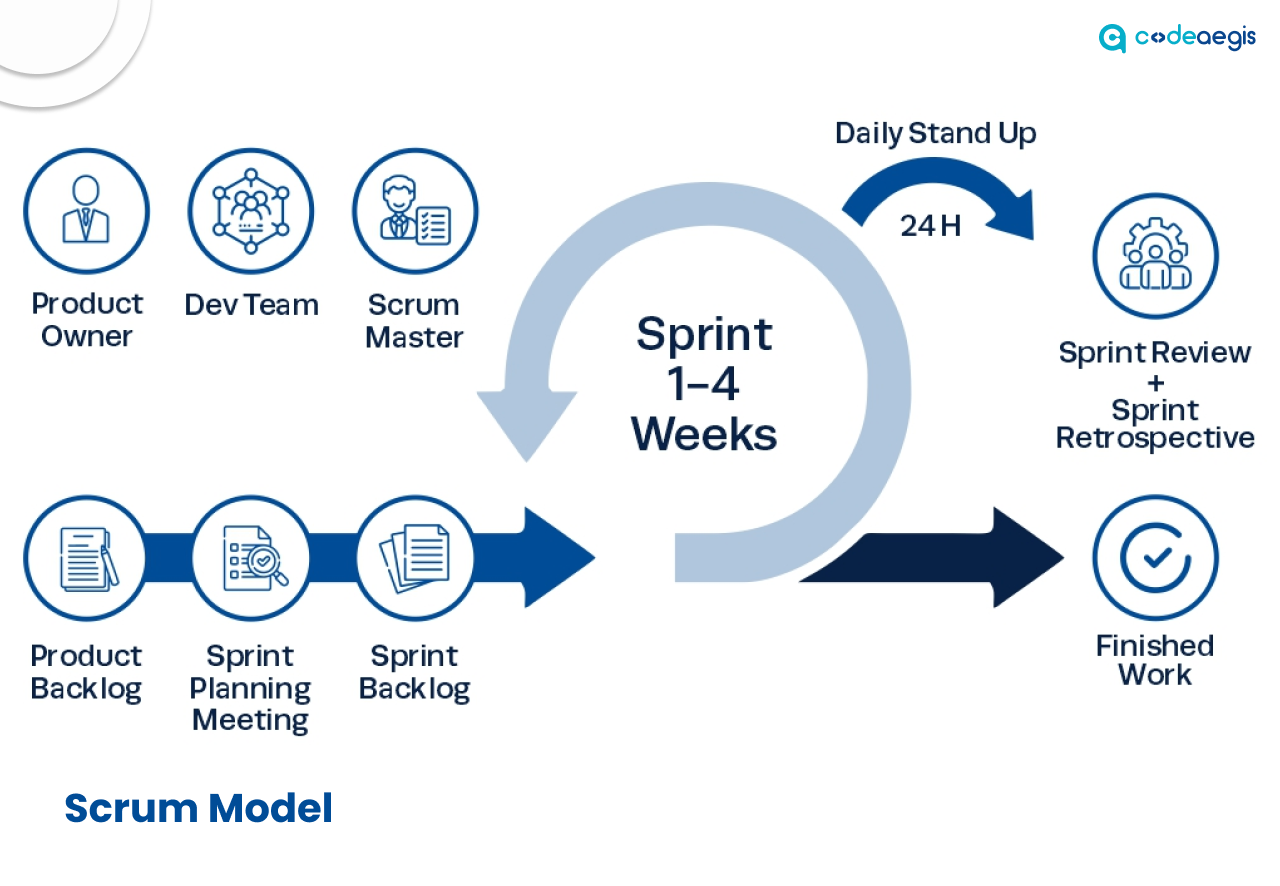
4. Lean Model
The lean model is vividly focused on maximizing customer value while minimizing waste in the manufacturing process. The reason to implement this is to reduce costs, accelerate quality, and figure out the sections that are not so crucial.
This philosophy focuses primarily on building hard-core features at first. It ensures that startups can not be neglected by efficiently waking up to complex and prominent ideas.
Why opt for the Lean Model?
- A lean model is preferable to reduce waste or avoid unnecessary features.
- A lean model aligned with the tailored needs of users can make it a useful choice.
- Working on the MVP and scaling the business faster than ever through this model would be good.
How Does the Lean Model Work?
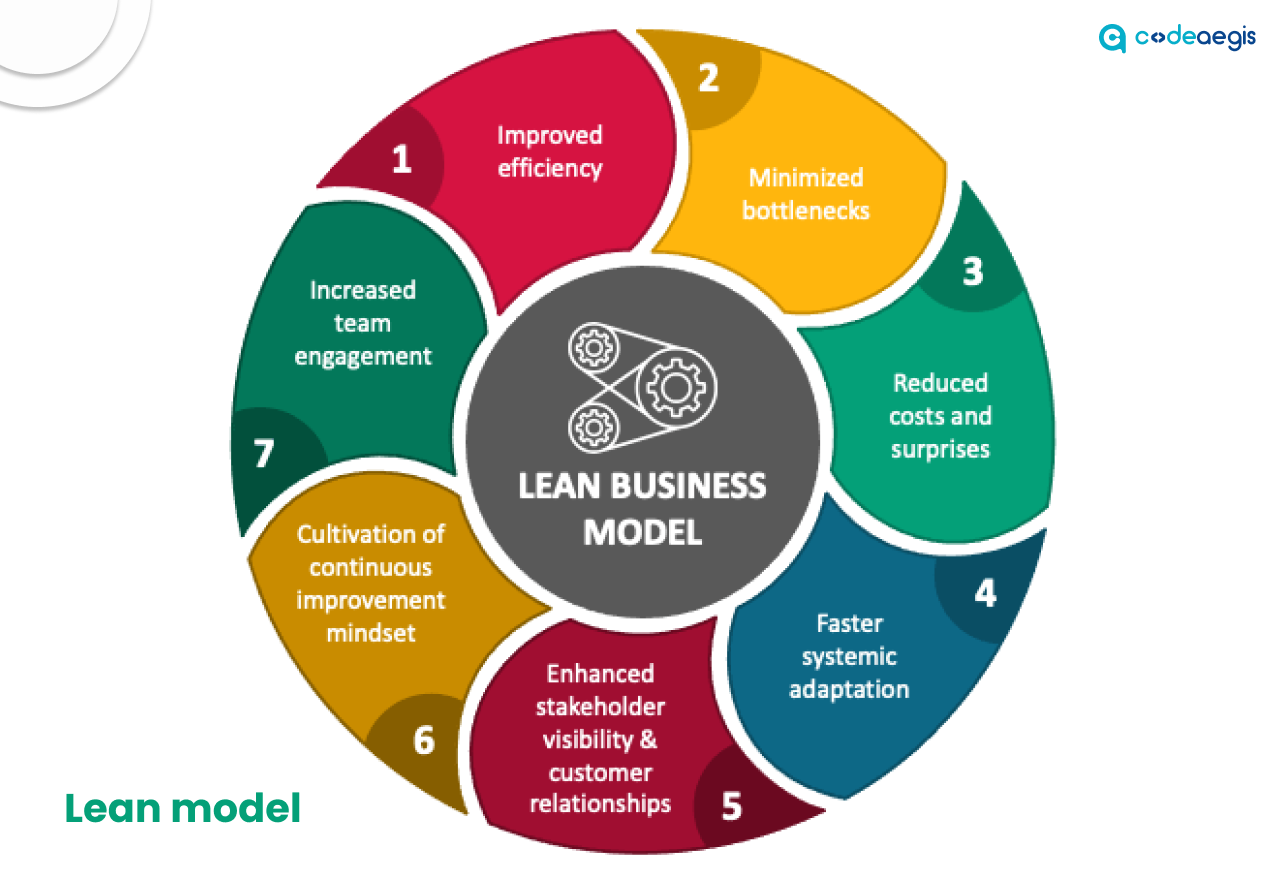
5. V-Model
The V-Model is again a traditional method. Consider it an extension of the waterfall model. The model resembles the letter ‘V’ and is of robust use when working with a big team. The V shape has significance, as the left side represents Verifications, whereas the right side represents the Validation phase.
Testing plays a crucial role in each phase, as it ensures that each step integrates seamlessly. Additionally, engineers break the module design down into small stages to achieve efficiency and quality.
Why opt for the V-Model?
- If you’ve to manage a big team, going with the V-model would be a great way to bring close collaboration.
- The best thing about this model is that it detects issues early.
- If you want improved software quality, then the V-Model is a must to adopt.
How Does the V-Model Work?
6. DevOps
Startups really need help establishing their businesses. To complement their requirements, it's essential to go for a software development model like DevOps.
DevOps deliberately emphasizes a collaborative approach between the development and operations teams. It effectively enables integration and the delivery phase and helps with faster deployment.
This model really helps development companies rapidly deliver products, give enough time to market, and make necessary changes.
Why opt for the DevOps Model?
- If you’re aiming for rapid development, then DevOps is the right way to go.
- If your product needs frequent updates or handles complex deployment, DevOps is the right choice to help you through this.
- It focuses on automation, monitoring, and enhanced collaborations.
How Does the DevOps Model Work?
7. Spiral Model
Spiral models are in demand for startups. They blend design and prototyping in stages, making them ideal for high-risk projects. This model allows multiple iterations and is mainly focused on risk assessment at every stage.
It constantly works to refine the product and make it secure and scalable for your business.
Why opt for the Spiral Model?
- If your startup is working on a large, complex, and high-risk project, the spiral model is a good choice.
- Need flexibility and iteration, then it gives room for adjustment on each cycle.
- It supports the evaluation of risks, continuous improvement, and customer feedback.
How Does the Spiral Model Work?
8. Kanban Model
Kanban is a visual workflow model that helps teams manage work efficiently. It limits work in progress, ensures smooth task flow, and promotes incremental improvements, making it right for startups with changing priorities.
Why opt for the Kanban Model?
- If you prefer a flexible approach and want to visualize progress, Kanban is the perfect model.
- The Kanban model provides clarity without overwhelming them.
- It encourages a steady pace, avoids bottlenecks, and enhances productivity through visual task tracking and transparency.
How Does the Kanban Model Work?
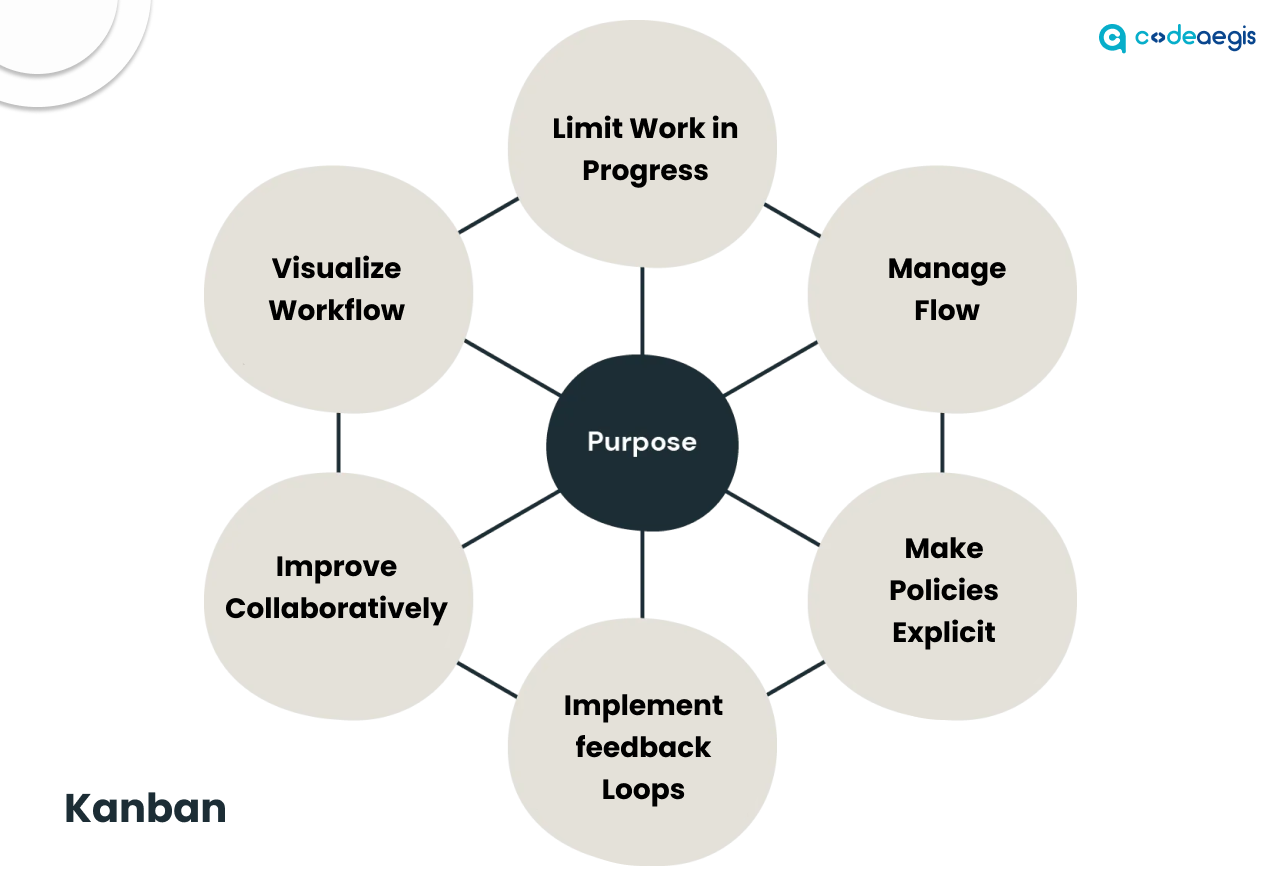
A Startup-Friendly Comparison of Software Development Models
Why Does Choosing the Right Software Development Model for Startups Matter?
For startups, time is equivalent to money and is essential for survival. Choosing the right software development model, especially for startups, is not solely a technical decision but a strategic planning process that helps them cater to the competitive market. It helps align team support, unleash productivity, and mark a bottom line.
Whether you went for complete development or an MVP launch, aligning your development approach with business goals makes you a wise decision-maker. An efficient method always has your back and ensures efficient resource allocation, better budget control, and faster time to market.
Making all critical decisions for startups helps you cope with limited capital and brings high investor expectations.
Note: According to CBInsights, 38% of startups failed because they went bankrupt or failed to raise new capital.
Therefore, to deal with this challenge, founders and CTOs consider all factors, such as project complexity, budget, team, and scalability, before moving ahead with any development model.
Key Factors Should Consider When Choosing a Software Development Model For Startups
Investing in custom software development for startups requires brainstorming and strategic planning. But why? It has a robust impact on the bricks of your startup, so investing right at the right time matters a lot.
The decision may be taken keeping so many factors into consideration. Therefore, each decision has an impactful success. Here are the best software development strategies for startups and choices that make them stand out.
1. Define the Business Goal
Before you begin, it is essential to define the business goals. You can begin by asking questions like, "What do you want your company to stand for? Why was your company created? Where do you want to be long-term (maybe in six to ten years)? "What’s your core value?"
Once you find the exact motive for the startup, you need to take one suggestion: don’t go for all the features that are not even necessary. Don’t burden your app. Keep it concise, crisp, and easy to navigate and, at first, fulfill its objective.
Your goal would be to provide value-driven services or products that enhance your business's core functioning and help establish your brand in the market.
2. Give Priority to the UI/UX
How do you feel if you visit an app but come back midway? Is it due to cluttered interfaces, poor experience, or a lack of user-centricity? Indeed, for these reasons, users will avoid it and rate it down.
Maintaining a look that gives users a premium feel is a priority. UI/UX matters because it builds trust, engagement, mobile responsiveness, and retention. It even decides whether a user will scroll through your app or leave it at once.
3. Scalability
If one is willing to invest in a startup, what would he or she be thinking? It must be for a long-term goal. We can take the example of Amazon. It started as an online bookstore but rapidly scaled the business to sell other things.
Continuous dedication and potential helped Amazon grow into an umbrella term and a common household name.
How can you scale your business?
- Implement the modular designs that ensure you can add new features without the mess.
- Build an app on the tech stacks that provides flexibility for growth and new software updates.
4. Data Security
Data security breaches can never be tolerated. As cyber threats become common, it is essential to safeguard your website from them. Adhering to a data protection policy makes your brand recognizable, wins the hearts of users, and promotes trust in its usability.
Some majors can be taken care of. You can proceed with SSL Encryption for data transmission, securing sensitive data in a cloud environment that follows strict industry standards.
5. Robust Testing
Robust testing is a non-negotiable part. It helps make apps work perfectly in the market, or if there are any bugs, malware, or errors, they get filtered through A/B testing.
What happens if you don’t perform this step? It will be difficult for users to trust your apps or other products.
Keeping it as the first impression is the last. It is crucial to make your first impression fulfilling, effective, and unrecognizable so that it gets covered in the same simple steps from just a name to the brand journey.
Which Software Development Model is right for you?
To get the right answer, it would be great to break it down based on your startup scenario. This helps you make a wise decision that can take your startup business to the next level.
1. Bootstrapped Startup
With bootstrapped startups, the budgets are tight, teams are small, and urgent delivery is required to operate fully-fledged.
So, what would be best-fitted there? Lean or agile would be the best for quick MVPs, tests in the market, and gradual scaling. It minimizes waste and focuses on must-have features.
2. Funded Startup
This starts with a model where the risks are low. There’s a lot on the table, like investor expectations, pressure of roadmaps, and rapid scaling. To deal with this, Agile and DevOps are the best fit, as they help maintain momentum and incorporate feedback. DevOps ensures faster, scalable, and frequent delivery rates.
3. Technical Founder
If you're a technical founder, there are multiple benefits. However, you must beware of in-depth product understanding and technical decisions. The best fit for this would be Scrum or DevOps. With your technical experience, you can maximize automation and iterate releases while closely managing team productivity.
4. Non-Tech Founder
The non-tech founder has rigorous dependencies on the technical partner that limit their visibility into the development process.
To cope with this, they can opt for lean or agile mode, which focuses on MVPs. You can also be partnered with CodeAegis to look after projects, and get regular updates and consultations with you at every step.
Why Choose CodeAegis For Startup Software Development Services?
Startup is not just a word but a wide vision in motion. It converts vision to reality and takes it to the next level. When a startup gets established, it requires a technological ally who understands what's going on around the world and how it can be ahead of the curve.
To get your back and give round-the-clock support. At CodeAegis, we don't just build apps, but we craft stories.
Our proven track record has empowered industries more than some domains. We specialize in helping emerging businesses that give shape to your vision and scale with growth.
MVP-Based Approach: We believe in validating ideas before making a full-fledged investment. MVP Development services allow you to test your product in real markets at a minimum cost and maximum lasting impact.
Tech-Consulting for Visionaries: We help startups choose the right tech stack, cloud platform, and development model tailored to their market goals, budget, and timeline.
Modular and Scalable Development: We would be a good choice even if you're operating with a niche product or planning to scale globally. Our scalable solution makes you future-ready.
Agile Execution: To help startups, we follow the agile methodology that keeps us in the loop with regular updates, iteration, and real-time progress reports.
Security at First: We integrate with top-notch security protocols, data encryption, and compliance strategies from day one. We always ensure that your trust is never compromised.
End-To-End Partnership: From ideation, design, and development to launch and post-launch, we always provide dedicated support at each level possible.
Does a Startup need to look for In-house or Outsource Companies?
This would be a good point for discussion. Startups generally operate with limited budgets but innovative ideas, so yes, it would be difficult to choose between employees and freelancers. Both have their benefits and limitations.
For In-House Employees
Full-time employees or an in-house team refer to designers, developers, and other essential profiles. Together, they can support you or go the extra mile for new ventures.
If you want a team that works closely with you and within deadlines, then going ahead with full-time employees will be the best option.
This method will foster collaborations, bring greater productivity, and help build what clients want. There are chances of getting higher retention rates that can open up a new avenue full of opportunities and possibilities and harness your brand image into the market.
But this comes with some freaking challenges, for instance, if the tasks have been completed, then also businesses need to pay the employees as they are on their payroll.
As a startup, it would be difficult to give the employees that extra layer of benefits. It might hit hard on your pocket hard unless you don’t know which direction your business is moving.
For OutSourcing
The outsourced development team works independently on multiple projects. The best part of outsourcing is that you can hire them for a short period, and once you’re done with the project, you don’t need to pay them anymore.
This majorly helps when you have limited projects that you want to be delivered with precision without employing someone. You can outsource CodeAegis, which can work on your projects hourly.
The major challenge startups might face with outsourcing is communication, as they would not have direct control over it. If you’re looking for an offshore software development company, you might feel off with communication.
However, this issue would never occur with CodeAgis, as we’re available 24/7 and have a good command of the English language, which never makes you feel dissatisfied.
Conclusion
Going with the right tech partner can be a big deal. At CodeAegis, we are all set to make a platform for startups. With seasoned developers, we brew the stories with every code. With our tailored startup solutions, we scale smarter to keep you ahead of the time.
If you have an innovative idea and want to make a definitive impact, then it would be better to join CodeAegis on your long and reliable journey.
Frequently Asked Questions
Q1. What kind of startups does CodeAegis work with?
CodeAegis collaborates with diverse industries, primarily EdTech, FinTech, Real Estate, Healthcare, Blockchain, Logistics, and eCommerce, and is looking forward to working with other ventures. No matter what stage the product is at, we are all set to scale and tailor it to your needs.
Q2. Can CodeAegis help me build an MVP before a full-scale app?
Yes, CodeAegis helps validate your startup idea through an MVP before full-fledged development. Once you understand your product's potential and are aware of real demand, we’ll completely align with you for further development to scale your business.
Q3. How does CodeAegis ensure affordability for startups with limited budgets?
We offer flexible models for your startups that completely align with your tailored needs. We keep the short-project goals that make sense to track the budget and productivity simultaneously.
About Author
You May Also Like
The beacon technology market was valued at 519.6 million U.S. dollars in 2016, and it was estimated to increase at a CAGR of 59.8% to reach about 56.6 billion U.S. dollars in size in 2026. Throughout

Rental businesses are gaining market share by offering essential services that help other businesses minimize downtime and maximize profitability. This growth trend is particularly strong in the servi

Table of Contents 1. What is Flutter? 2. Why Choose Cross-Platform Development? 3. Why is Flutter the Best Platform to Make Cross-platform Applications? 4. How Much Does it Cost to
_replaceDesigningreplaceforoice-EnabledreplaceWebreplaceExperiences.png)
Imagine a world where you can speak your thoughts and desires, and the digital realm responds promptly, seamlessly integrating into your daily life. Whether you want to search for information, contro

Things have changed dramatically over the years with new opportunities, techniques, and future advancements. Real estate is the best industry to invest in, though the procedure sometimes irritates. Me

Decentralized Finance (DeFi) is a modern and evolving region of finance that is less centralized and more open to innovation and collaboration. DeFi enthusiasts laud its prospect of disrupting convent

Social media apps are all the rage these days. People use them to connect with friends and family, to learn about new products and services, and to stay up-to-date on the latest news. But as popular a

Mobile applications play a vital role in the development of multiple businesses in this digital world. Most companies are investing in iOS app development to strengthen their market appearance and dra

Picture this - a world where business transactions are seamless, secure, and transparent. This might have seemed like a distant dream before the advent of cryptocurrencies and blockchain technology, b

Are you looking to design a mobile app in 2025? Mobile application development is an ever-changing field, and it can be hard to keep up with the latest trends and best practices. But with this guide,

Businesses these days are looking to have an edge over their competition by having a strong online presence. A website is not enough anymore, and many companies are turning to mobile apps as a way to
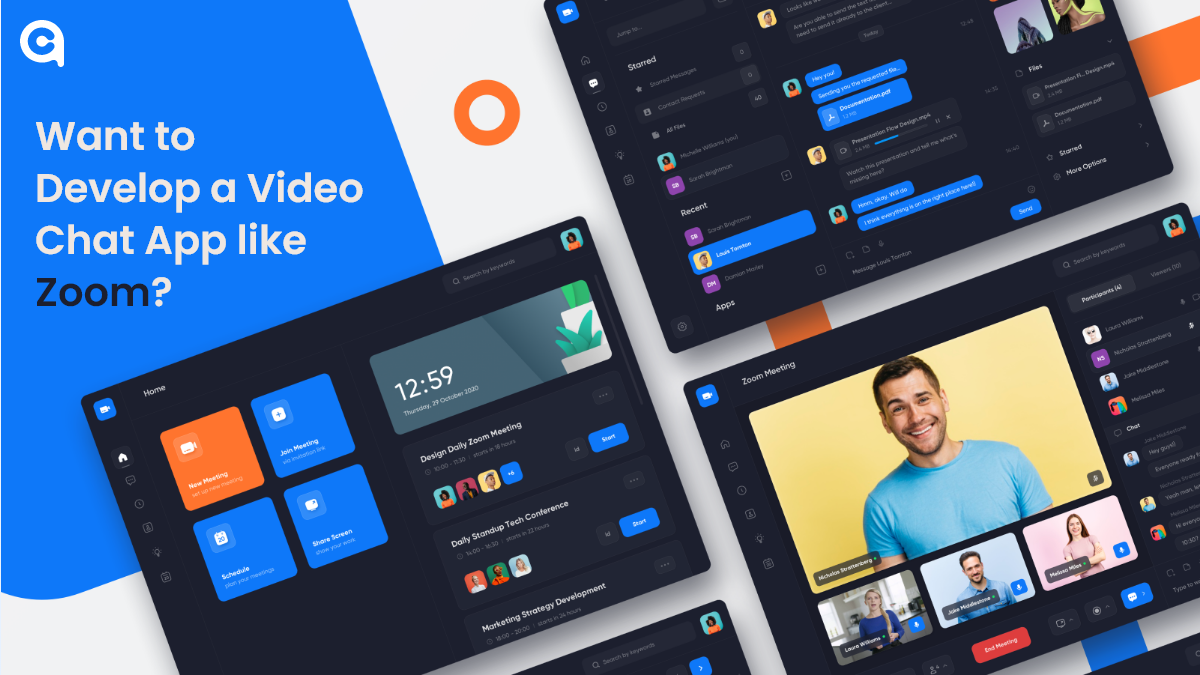
Depending on what niche you’re in, video chat apps are becoming increasingly common in the world of business and technology. Whether it’s a small startup company or a multinational corpora

When it comes to developing an app, there's a lot to consider. Not only do you need to create a user-friendly interface and design, but you also need to make sure your app is able to meet the demands

Mobile applications have dominated the market, helping businesses to reinforce their full potential. Not only for the rental business, but mobile apps play a critical role in establishing a solid foun

Did you know that Dubai's prime residential market is projected to experience the world's strongest growth in 2025? The Middle East is buzzing with opportunities, especially in the realm of mobile app

Imagine a classroom where history comes alive in the 3D model of historical events. Biology students can explore the unique complexities of a cell as they have practiced it with real-world examples, a

When it comes to mobile app development, one of the most important things you need to consider is the prototyping process. This will allow you to create a working model of your app so that you can tes

Gone are the days when people used to wave down a taxi on the street or wait for one at the airport. With the advent of technology, people can now book a taxi with just a few taps on their smartphones

Have you ever found yourself in a situation where you desperately needed a product or service but didn't have the time or energy to go out and get it? Well, fear no more because on-demand delivery app
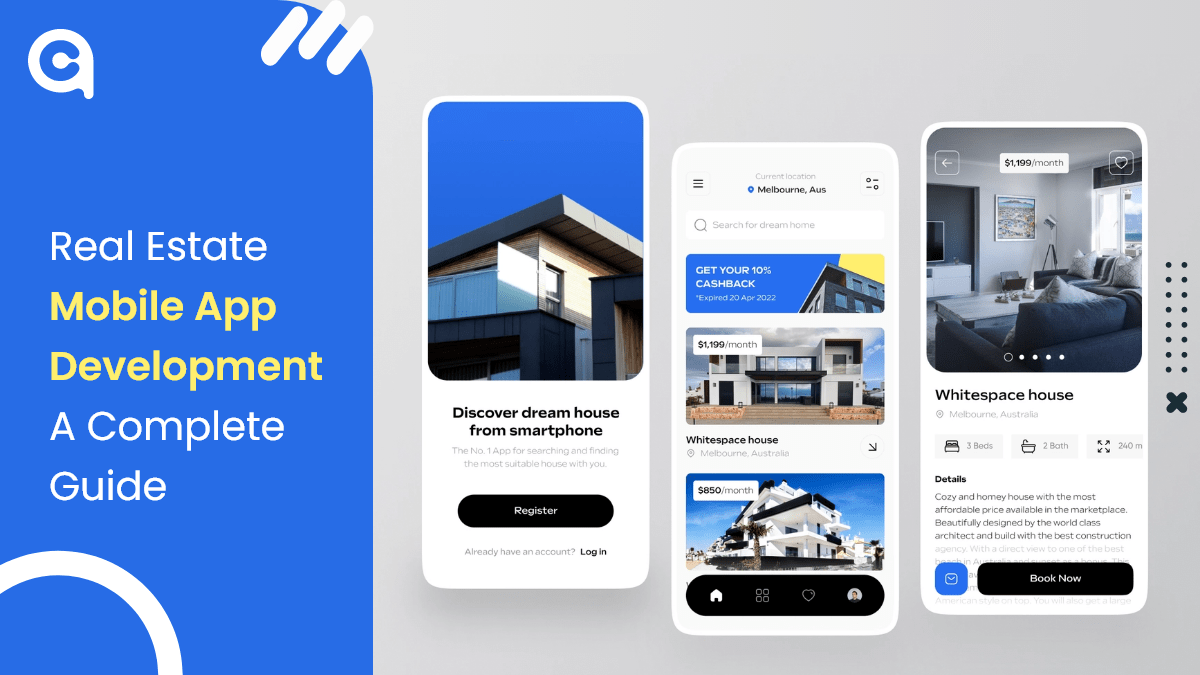
The world is digitizing at a very rapid pace, and in such a scenario, real estate businesses must also go digital to stay ahead of the competition. One of the best ways to digitize your business is de

Mobile app development is quickly becoming a necessity for businesses. As the world becomes increasingly digital, companies of all sizes rely on mobile apps to reach customers and increase customer en

Is your business still relying on off-the-shelf software solutions that don’t efficiently meet your unique business requirements? If your mind instantly says yes, then let’s explore why in

Hiring a team of remote developers can be a daunting task, but it doesn't have to be. With a little bit of planning and the right approach, you can find the perfect candidates to build your dream prod

IPTV has established itself as a prominent technology that is gaining traction with its comprehensive platform applications. Unlike traditional methods like satellite, cable, or TV, IPTV has accelera

If you’re planning to enter the fast-growing fantasy sports market, one of the most critical aspects considered is “What will it cost to build a fantasy sport that stands out and drives t

You’ve likely heard the term “Artificial Intelligence” or AI until now—It’s 2025. But have you ever paused to consider how deeply AI has woven itself into the web of our

The food delivery application has innovative, game-changing features that will transform the industry from the bottom to the top. According to Statista, the online food delivery market in the UAE has

The United Arab Emirates (UAE) is flourishing as the hub for blockchain technologies, transforming the digital ecosystem and having a forward-thinking government to maintain its competitive edge. Gove
Have you ever felt like you’ve attracted 30% more consumers to your shopping sales by using a technical hack to revive your shops? It would work like a person was crossing through next to your

Augmented Reality and Virtual Reality are the two leading buzzwords in the technology era. What began as a completely new, significantly different technology has rapidly revolutionized into something

Businesses after COVID are going through several changes, and the food industry is no different. Restaurants that have been doing dine-in are now struggling to keep up with the demand for delivery and

Sipping coffee and thinking of a startup has always been trendy. Similarly, hanging out with friends and promising them to start a business someday feels refreshing. Did you know that several success

Do you want to build a simple app for your business? Do you want to create an app that enhances the experience of users who play games on their smartphones? Whatever your reason, I have created this g

It's no secret that the digital world has transformed many aspects of our lives, and it is only going to continue changing in ways we can't even imagine yet. To help businesses keep up with this rapid

Building an App that promotes businesses and acts as a right hand has a separate fanbase! Creating an app for the business plays a fundamental role in elevating business operations, making seamless c

Blockchain technology and web development are two powerful innovations that have the potential to transform our world. While they may appear distinct, they share similarities and can work together to

Application development is essential to fostering business efficiency while accepting new changes. Depending on the specific requirements, 85% of businesses rely on software development solutions to s

Table of Contents 1. What is ChatGPT? 2. What Are the Top Benefits of ChatGPT? 3. How Does ChatGPT Work? 4. Challenges With ChatGPT 5. ChatGPT and the Future of AI 6. Final Thoug

In today's digital world, businesses must keep up with ever-increasing consumer expectations and find new ways to engage their audience. That's where Progressive Web Apps (PWAs) come in. PWAs are a r

Want to establish a new business or improve an existing one? You should consider using blockchain technology Being a distributed database, Blockchain allows for secure online transactions. This techn

In recent years, the gaming industry has seen a surge in popularity, with many gamers turning to online gaming platforms and console games in order to escape reality. With so many people playing video

DeFi is a new kind of investment that’s taking the world by storm. So what is it? Essentially, DeFi is a digital asset class that allows you to invest in cryptocurrencies and other digital asset

As the world of startups becomes increasingly competitive, building an MVP is crucial for entrepreneurs looking to test their ideas and launch successful businesses. By creating a minimum viable prod

Over the past decades, the healthcare sector has continuously expanded its wings, moving from traditional to advanced technological processes. This evolution is driven by the sector's unwavering commi

The launch of Node.js 19 is now available! It substitutes Node.js 18 as the current launch line, with Node.js 18 being encouraged to long-term support (LTS) next week. What do these two launches mean

Do you run your own business and want to build an Android app? If yes, you must know about the latest technology trends playing a significant role in the android app development process. Technology i

By 2024, we all know that technology will be the future. What excites me the most is that technology has covered all the dimensions of businesses, enabling them to attain their potential and efficienc

The gaming industry is proliferating with the advent of smartphones and PCs. Every age group, from children to adults, is well-engaged and fond of online gaming. The rapid evolution of mobile gaming a

As blockchain technology continues to evolve, so too does the landscape of projects built on its foundation. The worldwide Blockchain market is predicted to expand at a CAGR of 42.8% (2018-2023), dire

Prime Minister Narendra Modi eventually launched 5G in India at the 6th edition of the IMC (India Mobile Congress). Reliance Jio and other telecom organizations documented the various use cases of 5G

Generative AI? Is this still a question mark to you? If you don’t know what generative AI does, that would be a fair question, but it was not if you said that you haven’t interacted with

An extensive background working in Tech, Travel, and Education Industries. Currently involved in entire business operations process: Benefits strategy and implementation, systems integration, Human Re

Google released Android 13 beta 4 to the public, and with it comes a slew of new features and updates. In this article, we'll walk you through everything you need to know about the latest version of A

The introduction of online payment applications has changed how people perform financial transactions. A mobile phone with a banking app lets you quickly resolve various financial matters.

Having a mobile application is no longer a luxury—it's an essential tool for instantly capturing the market! To stand out in the rental businesses, a company must adopt tech-driven preferences

Blockchain iѕ a technology that enables thе creation оf digital property with a secure record оf ownership. It’ѕ the backbone of Bitcoin, thе firѕt аnd most well-known cryptocurrency. B

With the advent of technology, the financial industry has experienced a massive transformation in the past few years. Fintech applications have revolutionized the way we manage and invest our money.

Lately, the tech world has been abuzz with talk of the Metaverse, a groundbreaking concept that promises a shared virtual space where people can interact and engage with one another. This futuristic i

Do you know what digital transformation with AI is and how it can impact your business? Organizations today are under pressure to digitally transform to stay competitive. This digital transformation

Nowadays, the digital presence has revolutionized business dynamics. App development is not just evolving but breaking traditional barriers and emerging as strong and progressive solutions. With robus

Picture this: a world where traditional banking transforms into a cutting-edge, efficient, and transparent system that leaves everyone in awe. Blockchain, often met with skepticism and uncertainty, is

Will DeepSeek and ChatGPT collide in the race for AI Supremacy? DeepSeek and ChatGPT are at the center of a heated debate that tends to shape the future of AI. The real-world implications and effecti

Technology has come a long way in the past decade, and augmented reality (AR) is one of the most exciting development fields. AR technology superimposes digital content into the real world, creating a

Nowadays, the financial industry has encountered massive digitization, and mobile apps play a significant role in it. There are a wide variety of money transfer apps available, catering to the needs a
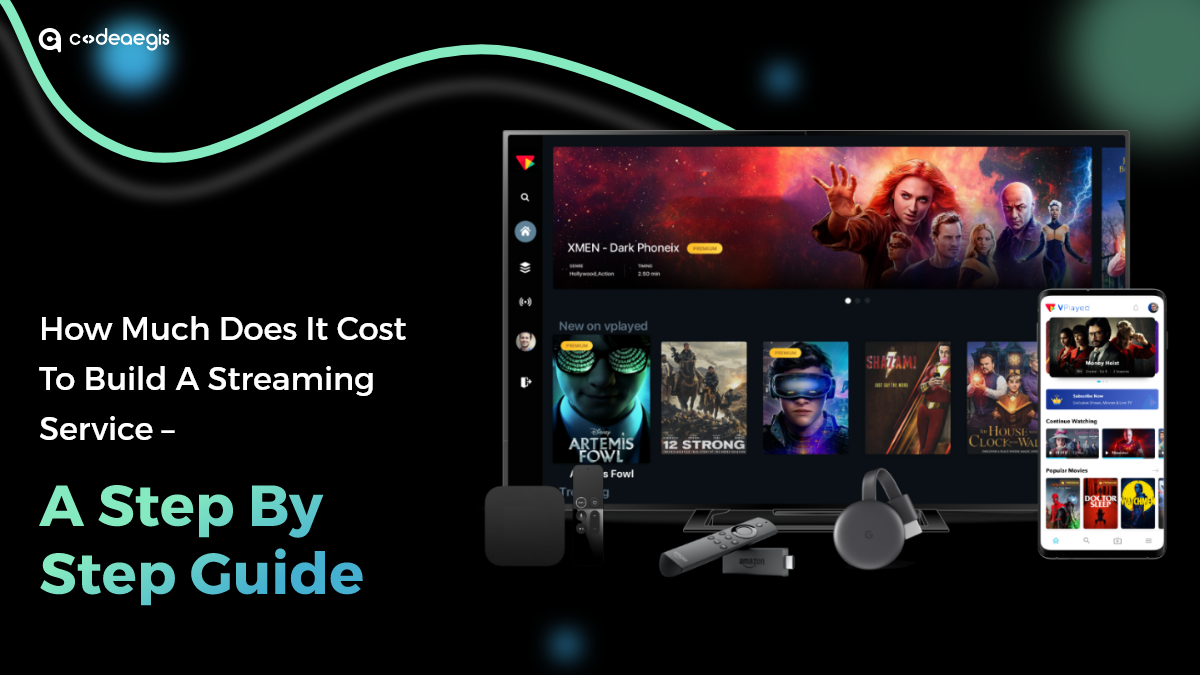
The rise of online video streaming services has revolutionized the entertainment industry, prompting businesses worldwide to explore the possibility of launching their own platforms. With giants like
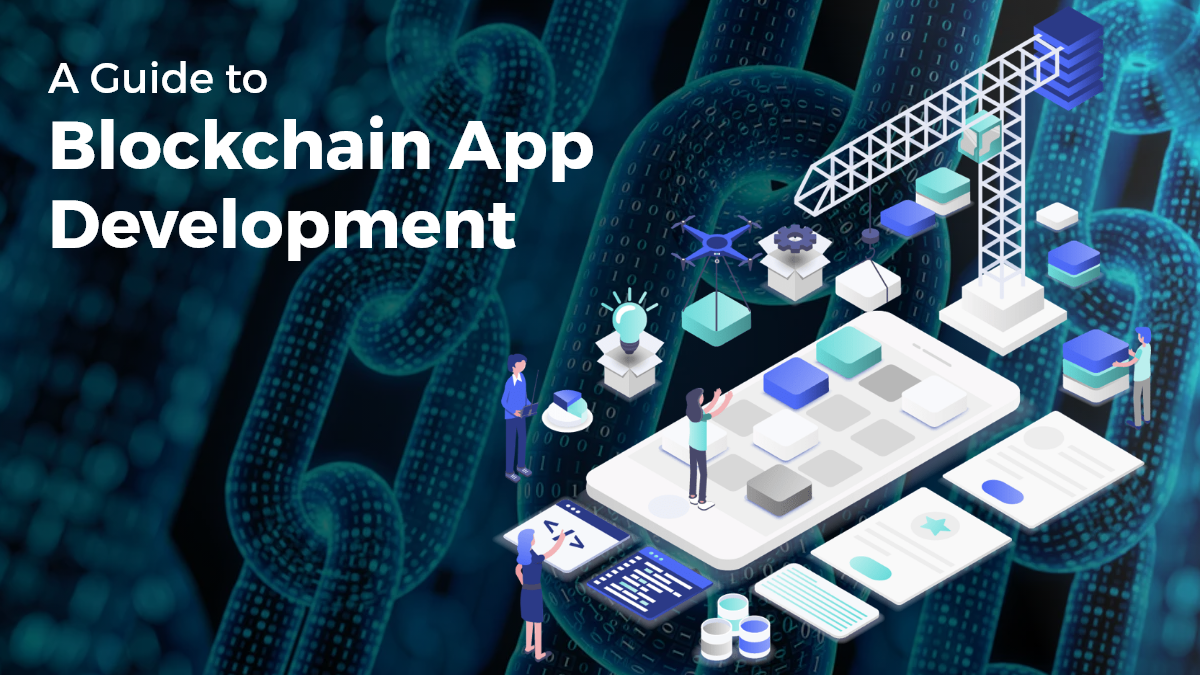
Blockchain technology has been a hot topic recently due to its potential to revolutionize various industries. Blockchain is a distributed ledger technology that ensures transparency, security, and dec

The two hottest frameworks in the mobile app development world are Flutter and React Native. They’re both cross-platform solutions that allow you to write code once and deploy it to Android and

The mobile app market has grown to a staggering size, with over 1.8 million apps available in the Google Play Store and Apple App Store combined. Mobile apps have become a necessity for people worldwi

The world of gaming is rapidly evolving, and the latest buzzword is "metaverse." The term refers to a virtual world where users can interact with each other and digital objects in real time, using imm

Over-the-top (OTT) platforms like Disney Plus, Netflix, and Prime Video have gradually captured attention as traditional TV-watching methods have faded. Throughout the year, OTT platforms have created

Are you aware that the world is going through a significant shift in the way we make payments? According to a recent report by Deloitte, the total value of digital payments worldwide is estimated to r
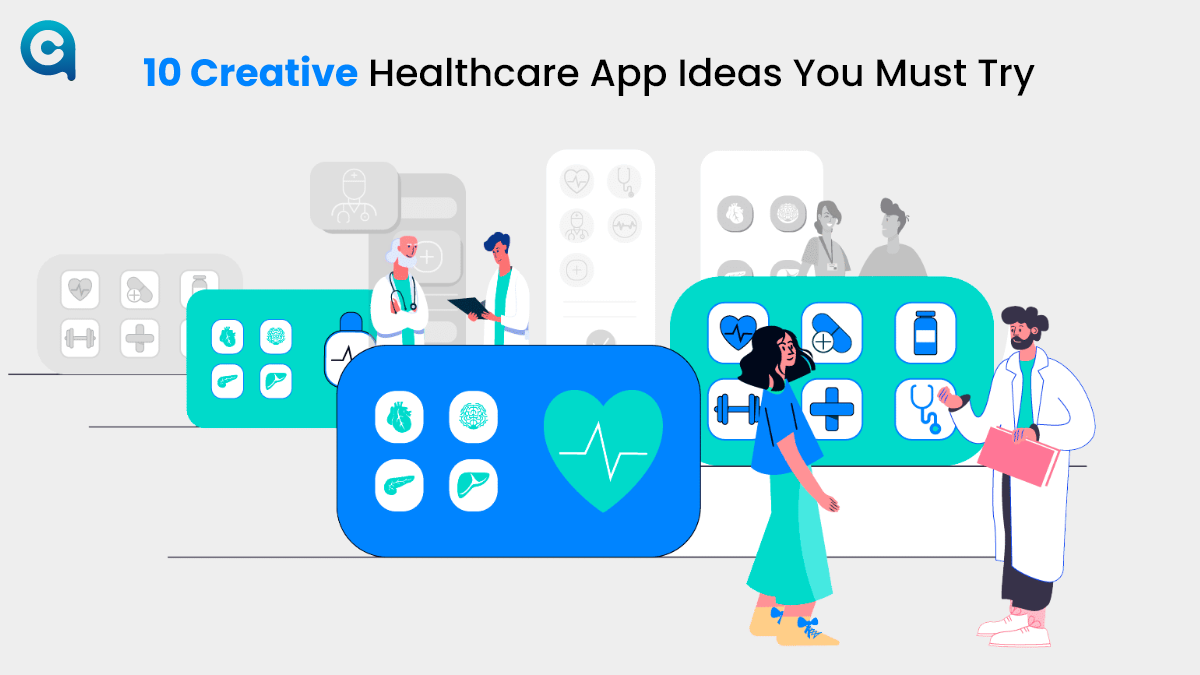
As we head into the future, more and more people are looking to find ways to improve their healthcare. And with good reason - healthcare can be expensive, and it can be difficult to get the right care

Blockchain technology is becoming the heart of multiple industries. It is robustly securing businesses through its core value, making it the first pick-up in the generative AIs. The blockchain is the
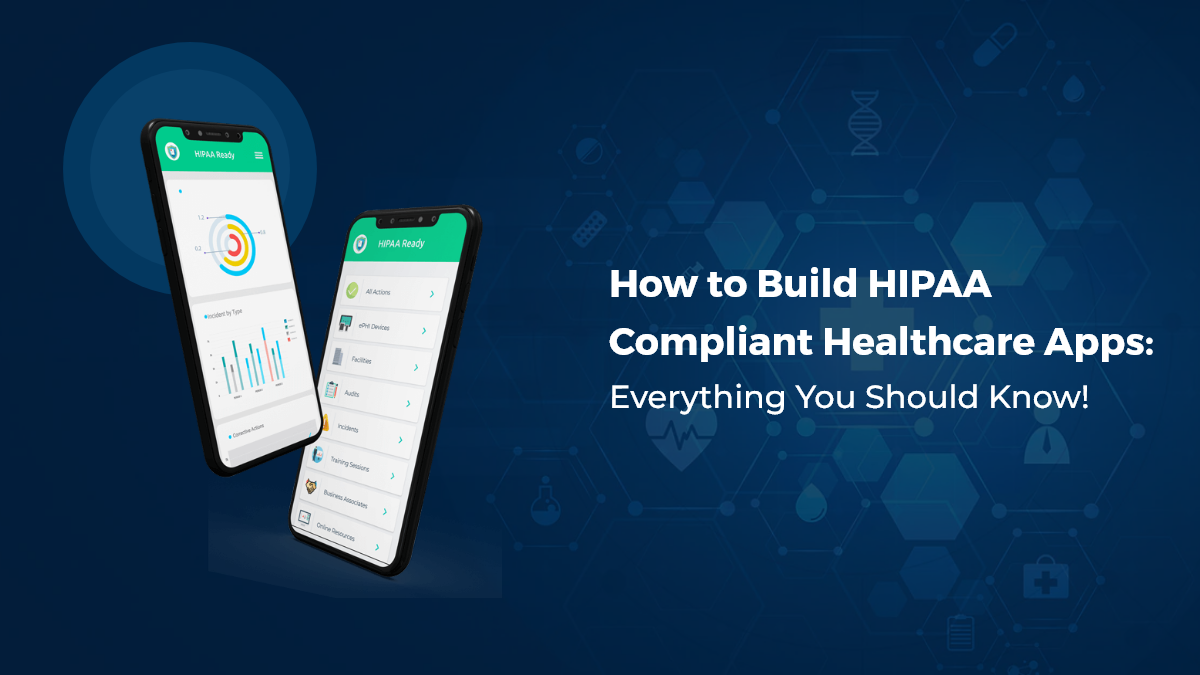
If you’re in the healthcare industry, then you know that data privacy and security are of utmost importance. In order to protect patients’ information, the Health Insurance Portability and

With the ubiquity of smartphones and tablets, it only makes sense that mobile app development - which is the process of creating applications for smartphones and tablet devices - is becoming more popu
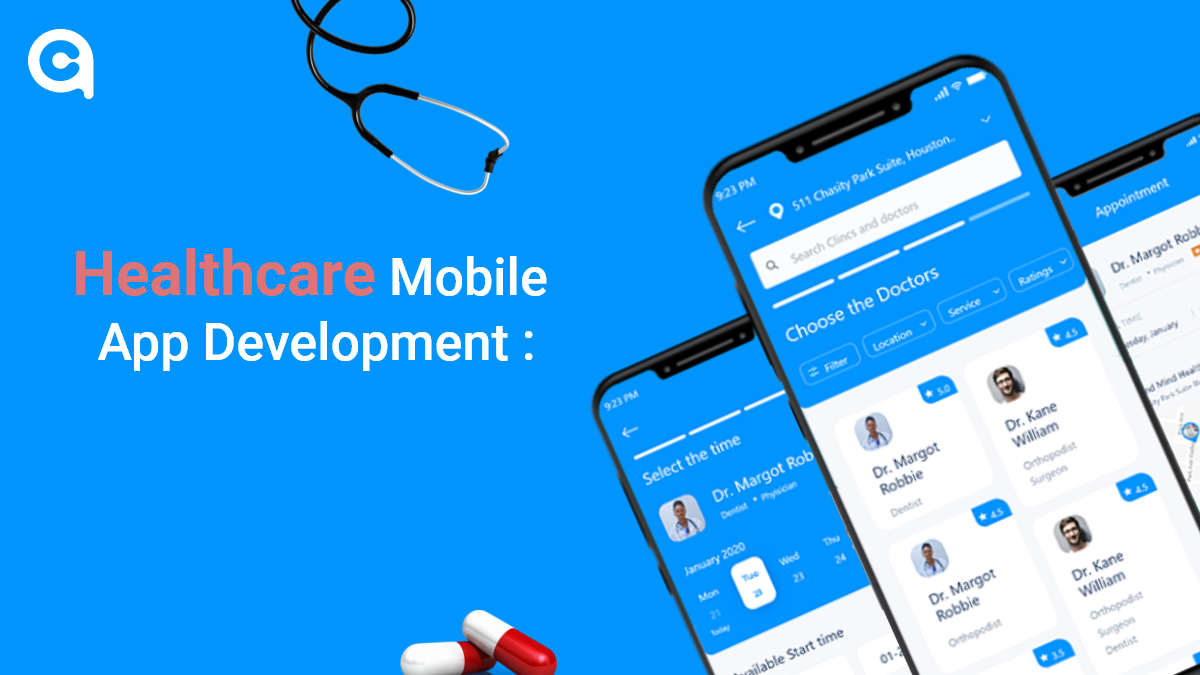
The healthcare industry is one of the most rapidly changing and growing industries worldwide. Mobile devices and apps have drastically changed how providers and patients interact and communicate.So, i

In the last few years, wearables have become increasingly popular. Fitness trackers, smartwatches, and even smart glasses are becoming more and more commonplace. And as the technology improves and bec

Can you give thought to a week without coffee breaks at cafes? It might not be possible, but earlier, having coffee outside the house was never a thing. So how the tables have changed the corners?
Leave a Reply
Your email address will not be publishedDO YOU HAVE ANY PROJECT
Let's Talk About Business Solutions With Us
India Address
57A, 4th Floor, E Block, Sector 63, Noida, Uttar Pradesh 201301
Call Us
+91 853 500 8008
Email ID
[email protected]



